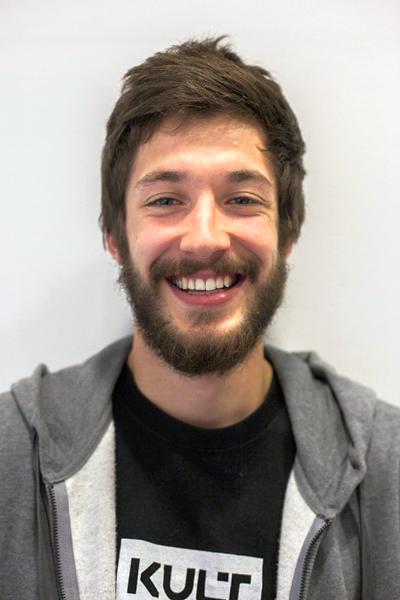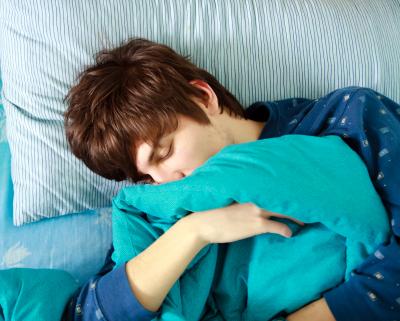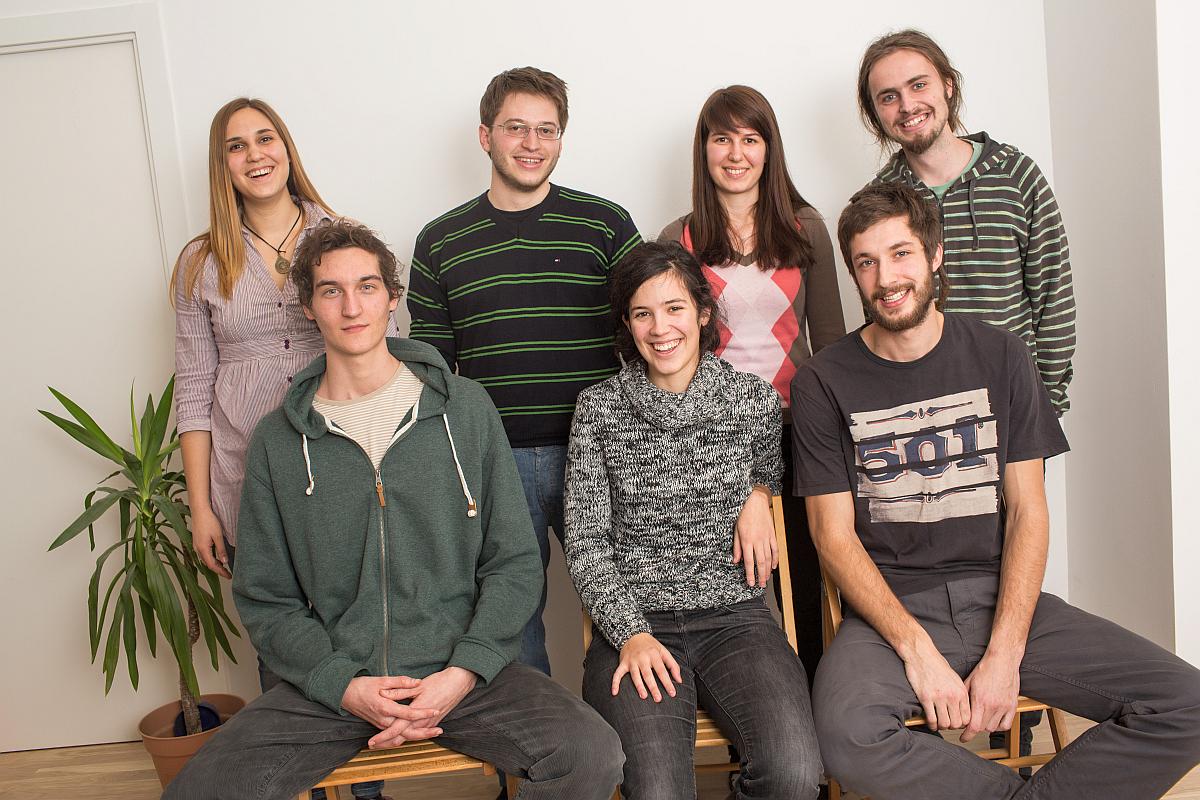
The idea of the Sunit system is based on improving a user’s sleeping experience. The concept was formulated in accordance with scientific findings showing that light before falling asleep and while wakening up influences the level of the sleeping hormone melatonin. Thus, the idea evolved for simulating the sunset and sunrise.

“
Sunit is a team of six enthusiastic students who came up with an innovative idea and chose an independent entrepreneurial path despite Slovenia’s uncomfortable economic situation and their small budget. As stated above, the crisis and fear are not an excuse for them, as they have seen their opportunities in the international market from the very start. In Slovenia, we need more self-motivation, says Mr Gonza, advising to the young that if they think the same they should start a business, as his team has started from scratch too.
At the moment, the Sunit team comprises a student of electrical engineering Mr Rok Kimovec, a student of cultorology Ms Kaja Vrhovec, a student of industrial design Mr Matjaž Poredoš, a biologist Ms Urška Pristovšek, a student of entrepreneurship Ms Katarina Jazbec, a student of computer science Mr Aleš Kurent, and a student economics Mr Tej Gonza, with whom we carried out an interview. We invite you to read it.
The great majority of people in Slovenia are not at all familiar with you and the rest of the Sunit team. Can you describe it in short what was your idea, with which you qualified for the champion’s circle to win the Global StartUp Battle, and how did it come into your mind?
Most members of the team meat two days before the StartUp Weekend in Ljubljana. We did brainstorming and came up with an idea which was formed with the help of a business model, potential users’ feedback and supervisors.
The idea of the Sunit system is based on improving a user’s sleeping experience. The concept was formulated in accordance with scientific findings showing that light before falling asleep and while wakening up influences the level of the sleeping hormone melatonin. Thus, the idea evolved for simulating the sunset and sunrise.
The simulation is run via a sensor fitted to a mattress’s edge which senses a frequency of human body movements. While during REM sleep our body is motionless, we are restless or our body makes moves during the second stage of sleep, which is the optimum condition for wakening up.
The sensor tracks the movements with the help of an in-built accelerometer and sends a signal via a Bluetooth connection to the Sunit system. This consists of a wakening component with a light and a speaker, which starts a simulation of the sunrise. The recognition of this stage takes place within an interval that has been set in advance, for instance, if a user wants to wake up at 8 am, the sensor will be activated approximately half an hour before the set time and determine the most suitable time within a 30-minute span. More familiarly, this means no more getting out of bed on the wrong side.
The idea has evolved and you must have concentrated all your efforts in making this young enterprise live on. What is it that your startup company needlessly devotes most energy at the time?
The holidays. :-) (We asked Tej Gonza the questions on 30 December, A/N) Our biggest problem at the moment is a lack of space which would enable us a productive environment for further development of the concept and the prototype.
How do you intend to finance your startup? Where could you encounter major barriers? Have you thought of crowdfunding?
As regards the financing, especially at the start, we would like our company to follow the lean-startup method as much as possible. In line with this, as much knowledge as possible should be acquired in the least possible time and with the least possible amount of money during the interchanging processes of building and testing prototypes. Currently, we invest private money into the development of the prototype, which is, of course, a very small amount of money. Moreover, we have attracted attention and interest of external stakeholders, so we are optimistic about our chances. Crowdfunding is currently not our preferred option. This is mainly due to the fact that our project is aimed at hotels, not end users.
Belonging to a young generation of entrepreneurs, which has experienced a maximum expansion of globalisation, (how) can you find your opportunities, or have you experienced it at first hand that you are competing with the whole world?
I find an opportunity especially in the potential our idea shows for the global marketplace. The project is mainly aimed at small and medium-large innovative hotels which place great emphasis to well-being of their guests. However, we did not come up with the idea by coincidence; we took a systematic approach. First, we determined a few segments of users which could show interest in our product.
For each segment, we formulated hypothesises and put questions related to them. In groups of two, we did a survey (with questions prepared in advance) among several potential end-users of our system in order to find out whether our hypotheses could be confirmed. We came to reasonable conclusions while doing interviews at hotels.
Thus, in the second round of interviews, we focused on the last segment, which has been thoroughly examined in the next stage, where hotels’ managers and employees were asked additional questions. The results achieved in this way have confirmed that choosing small and medium-large hotels as a target group was a good decision.
Unlike other potential buyers of our product, at hotels they have quickly recognised the product’s value added. At the same time, we have established that our end users could test the product directly during their staying at hotels. However, by making constructive comments, our supervisors have also helped us greatly with forming the idea.
Geographically speaking, I think that the product’s value added could be recognised first in Scandinavian countries (the polar night) and in the Arab countries, which lay considerable emphasis on hotel services. We are not afraid of the international market; moreover, we see an opportunity in it for learning and growth.
Considering the fact that you belong to a population group among which unemployment is consistently increasing and which – as it has lately been warned of – cannot get their opportunity, how do you comment the status of the young in Slovenia?
Passivity and conformity of “developed countries” enabled by current values to a large extent influence the young people who often shift the responsibility to the unsustainable economic conditions. This is largely happening in Slovenia, too.
What would you advise to the young who – like you – choose an independent entrepreneurial path?
Give it a try! We literally started from scratch, and although at first we were in a fog, we were soon offered an opportunity for developing the idea. You have nothing to lose.
The idea of the Sunit system is based on improving a user’s sleeping experience. The concept was formulated in accordance with scientific findings showing that light before falling asleep and while wakening up influences the level of the sleeping hormone melatonin. Thus, the idea evolved for simulating the sunset and sunrise.


































































